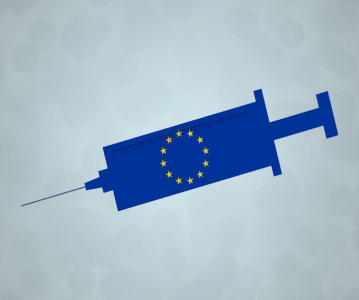Pharmaceutical Industry Feeling Force of Tax Inversion Legislation

The recent termination of AbbVie’s deal to acquire Shire makes this pharmaceuticals’ first major casualty of new US tax inversion legislation, and has jolted the industry out of its reverie, according to an analyst with research and consulting firm GlobalData.
Aparna Krishnan, MS, GlobalData’s Analyst covering Healthcare Industry Dynamics, states that the decision by AbbVie’s board of directors to terminate the Shire merger and acquisition (M&A) deal is due to the realisation that its value would be too much of a financial risk without the tax incentive component.
Krishnan comments: “By acquiring UK-based Shire, AbbVie’s effective tax rate would have dropped by 7%, enhancing its earnings by $350 million on a pro forma basis in 2013. In effect, the tax savings would have contributed anywhere between $15–18 billion in savings over the next 15 years, creating significant cash flow for the expanded AbbVie.
“As these tax savings were inherent in the value of the deal, it is no longer viable. Furthermore, new tax inversion laws are potentially corrosive to the industry earnings of others, meaning that the market may cool down on M&A deals in the near term.”
The analyst notes that while Shire will receive a $1.6 billion termination fee from AbbVie, its share price has unsurprisingly been hit hard.
Krishnan continues: “Notwithstanding this near-term impact, Shire will push ahead with premerger plans to expand its orphan drugs portfolio through acquisitions.
“Meanwhile, AbbVie will have to take stock and reassess its M&A strategy with its next move to diversify its portfolio. This will counter the risks associated with the company’s dependency on its highest revenue contributor, Humira, which could face biosimilar competition from as early as December 2016 in the US and April 2018 in other markets.”
Related News
-
News Patients vs Pharma – who will the Inflation Reduction Act affect the most?
The Inflation Reduction Act brought in by the Biden administration in 2022 aims to give better and more equitable access to healthcare in the USA. However, pharma companies are now concerned about the other potential costs of such legislation. -
News CPHI Podcast Series: What does the changing US Pharma market mean for industry and patients alike?
In this week's episode of the CPHI Podcast Series Lucy Chard, Digital Editor for CPHI Online is joined by James Manser to discuss the political and market changes in the US pharma field. -
News CPHI Barcelona Annual Report illuminates industry trends for 2024
The CPHI Annual Survey comes into it’s 7th year to report on the predicted trends for 2024. Over 250 pharma executives were asked 35 questions, with their answers informing the industry landscape for the next year, spanning all major pharma marke... -
News Which 10 drugs are open to price negotiation with Medicare in the USA?
The Centres for Medicare & Medicaid Services, under the Biden administration in the USA, has released a list of the 10 drugs that will be open to price negotiations as part of the new legislation under the Inflation Reduction Act (IRA). -
News EU Medical Devices Regulation causes unintended disappearances of medical devices for children, doctors state
Doctor groups and associations have appealed to the EU to correct the EU Medical Devices Regulation law that may cause unintended shortages of essential drug and medical devices for children and rare disease patients. -
News 10 Major Drug Approvals So Far in 2023
Last year, 37 novel drugs were approved by the FDA, this was a high number for such a category, and covered many fields including oncology, demonstrating how promising further research is, and how it is only continuing to build. To date, there are alre... -
News Detecting Alzheimer's disease with a simple lateral flow test
A novel rapid diagnostic test for early-stage Alzheimer's disease has been developed using a biomarker binder from Aptamer Group along with technology from Neuro-Bio, the neurodegenerative disease experts. -
News CPHI Podcast Series: outsourcing and manufacturing trends
Listen to the CPHI Podcast Series this June to hear Gil Roth of the PBOA speak with Digital Editor Lucy Chard about the biggest trends and topics to watch in pharma outsourcing and manufacturing at the minute.
Position your company at the heart of the global Pharma industry with a CPHI Online membership
-
Your products and solutions visible to thousands of visitors within the largest Pharma marketplace
-
Generate high-quality, engaged leads for your business, all year round
-
Promote your business as the industry’s thought-leader by hosting your reports, brochures and videos within your profile
-
Your company’s profile boosted at all participating CPHI events
-
An easy-to-use platform with a detailed dashboard showing your leads and performance







